The 'Founding Fathers' dreamt of a lasting European peace after the worst war in history. The official EU narrative tells us that the starting point of that project was a project for a common economic area. A voluntary cooperation of sovereign states aimed at reconstruction of the battered Europe has gradually evolved, with institutions that were to optimise this continental collaboration.
In 1992, the Maastricht Treaty was signed, giving birth to the European Union on 1 November 1993. The USSR had just collapsed, the Cold War had ended and Fukuyama declared the end of history. Despite the end of the "Trente Glorieuses" and some initial problems due to a slowing economy and non-European immigration which was becoming significant in some cities of the Old Continent, hope for a lasting peace and general prosperity prevailed.
The populations of the former Eastern Bloc countries dreamt of the German “Lebensstandard”, and they joined the EU on 1 May 2004, with the idea of becoming full members, equals and partners of the big brothers in the West. Everything seemed perfect. And then...
And then, as always, the future belonged to those who were able to dream big, and in the long term. Apart from a few unheard voices, nobody seemed to realise - or wanted to realise - that the signs of a federalist evolution were already there.
In the same year, the attempt to establish a “constitution for Europe”, also known as the Treaty of Rome II, began. One by one, sixteen EU countries ratified the treaty. But at the end of May 2005, France rejected the text in a referendum. For the first time, direct democracy was opposed to the European Union project. A week later, the Netherlands also rejected the text. One of the reasons was, as became apparent for the first time, the fear of a federalization of Europe, and therefore, in the end, of a total loss of sovereignty of the European nations.
But the Eurofederalists did not stop there. In 2007, they repeated their endeavour with the Lisbon Treaty, a rehash of the 2004 text. This time, direct democracy was avoided in order to make setbacks technically impossible. The fact is that people do not always want progress, so it is better to get them used to “letting the experts do it”.
But talk of European federalism still aroused suspicion and misunderstanding at that time. A United States of Europe? No one ever wanted that, what a strange idea... and yet, the idea was not new.
The Abbé de Saint-Pierre, in 1713, published the “Mémoires pour rendre la paix perpétuelle en Europe”, in which he evoked a “great project of the union of Christian princes to make perpetual peace in Europe”. Napoleon, quoted by Las Cases in the “Mémorial de Saint-Hélène”, fantasised about an “application of the American congress, or that of the amphictyons of Greece” for the whole of Europe: “In any case, this association will happen sooner or later by force of circumstance; the impulse is given, and I do not think that after my fall and the disappearance of my system, there is any other possible great equilibrium in Europe than the association and confederation of the great peoples”, the deposed Emperor is said to have said.
In 1831, the Polish Wojciech Jastrzębowski, who conceptualised the notion of ergonomics, described a project for a united Europe without internal borders. At the same time, publications favouring the creation of the United States of Europe abounded. Finally, in 1849, in a speech to the International Peace Congress in Paris, Victor Hugo also spoke in favour of a United States of Europe, and then popularised the concept throughout his life.
In the 20th century, Trotsky also advocated the idea of a United States of Europe - which would include Russia. During the inter-war period, federalists organised themselves, mainly around Coudenhove-Kalergi and his Pan-European Movement. After the war, in 1946, Churchill gave a landmark speech in Hertenstein, Switzerland, the main federalist event of the post-war period. From there, it is said, and notably through Churchill's son-in-law Duncan Sandys, the federalist idea took the form of an economic and institutionalised union, with the creation of the Council of Europe.
Let us now close this historical parenthesis and return to our immediate history. Once the Lisbon Treaty was ratified, a few years passed without a hitch. Then, in 2015, the “populist wave” started with the rebellion of the Visegrád Group countries. This rebellion was an important breaking point: the former Warsaw Pact countries, having to answer to their voters, rejected Brussels' immigrationist centralism head-on.
Nothing was ever to be the same since then. These Eastern member states, economically dominated by Germany and, to be frank, considered second-class countries by the West, broke a taboo and upset the Europeanist agenda: Nation states still exist and have not said their last word.
At first stunned, the Commission did not know how to react, especially as the growing voice of the V4 had found a favourable echo in the West among populations exasperated with not having been listened to on immigration for decades.
But the answer was not long in coming. It was the "rule of law". This concept, which is not defined in any treaty, became an obsession, without ever being based on a clear and universally accepted definition. And yet, like the words “democracy” and “tolerance”, the “rule of law”, by dint of repetition, became a totem of adoration and served the EU bureaucrats for exceeding their prerogatives.
After grotesquely conducted investigations resulting in completely spurious and biased reports, in which opposition’s opinions and statements were sometimes presented as “evidence of a breach of the rule of law”, the Parliament and the Commission started to act seriously: they were exceeding their prerogatives as laid down in the Treaties. From this point on, the European Union would completely change its nature.
Orbán has always been a legalist and has always sought to follow the letter of the treaties to protect himself from legal attacks - caring little for foreign criticism and opinion. This worked well in 2015 during the migration crisis. But it no longer works, precisely because the Commission no longer respects the treaties. Ursula von der Leyen - whose candidacy was, ironically, supported by Hungary - is the emblem of a serious change in attitude that too few have noticed.
Packing up EU funds owed to Hungary on the pretext of a breach of the rule of law - and unilaterally reversing the conditions a few months after negotiations - is nothing less than a direct attack on the rights of a sovereign state. But what is to be done for Hungary, isolated within the EU for various reasons? Without the support of another state, especially a major one such as Germany or France, Hungary finds itself helpless in the face of the new powers that the European Commission has de facto granted itself. Of course, Member States are sovereign and cannot be blackmailed by the Commission. But in reality that time is actually over, with the complicity of EU governments.
Hungary thus serves as a laboratory for Brussels federalism, which now seeks to change EU law in a pernicious way, creating a dangerous precedent. With this overreach of their legal competences, the EU bodies have given themselves the power to be coercive towards theoretically sovereign member states. Today Hungary, tomorrow Poland, Spain, France?
We are currently experiencing a radical change in the nature of the European project, announced by a number of clues that no one has taken seriously enough. All of this without a vote, without consultation, without a referendum, without a counter-power. Are we really aware of what is happening?
Read also
The Trap of Legal Immigration
Since 2015, immigration has become a major issue in Central Europe where, since the fall of Soviet communism, it was rather emigration that was the main social phenomenon. However, since the famous "migrant crisis" along the Balkan route, a lot has changed. And the faces you see in the streets of Warsaw, Budapest, Prague and Bratislava are changing too.
Ferenc Almássy
Country Report: Hungary, April 2023
Between 28 and 30 April, Pope Francis travelled to Hungary on an apostolic visit. During that time, he met with Hungarian leaders, visited the faithful and immigrants, and celebrated a large open-air mass in front of the parliament.
Ferenc Almássy
Digital Service Act: Censorship, the new value of the European Union
The entry into force of the Digital Service Act (DSA) at the end of August marks a worrying turning point in the development of the European Union and its relationship to freedom of expression.
Ferenc Almássy
On the hypocrisy of progressives
If there's one fascinating thing about the progressives, it's that they never really stop on the road to progress. And even when the discovery of their new advances leads us to believe that their model is not sustainable, so devoid of common sense does their madness seem, paradoxically, this permanent progress tends to prove them right: Progress ostensibly knows no limits.



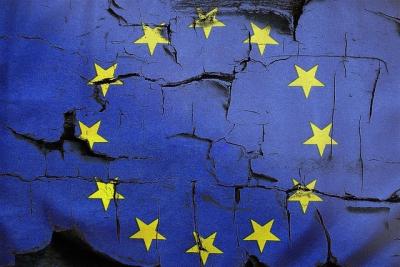

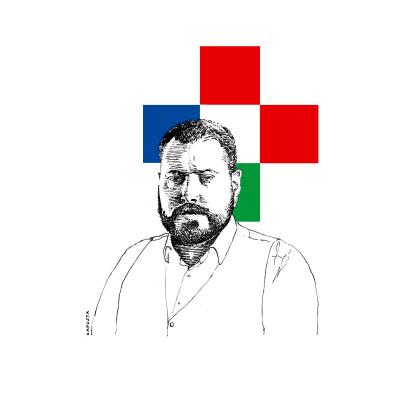
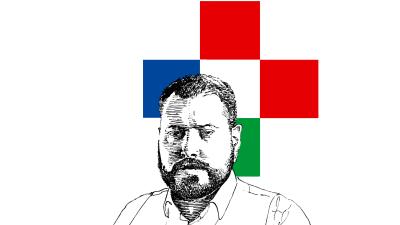

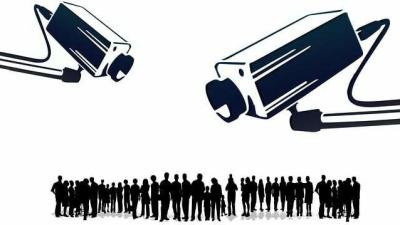

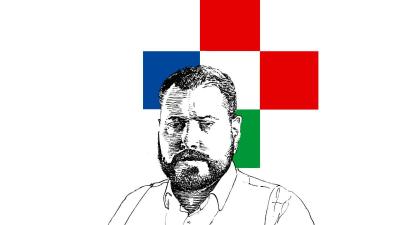

Comments (0)